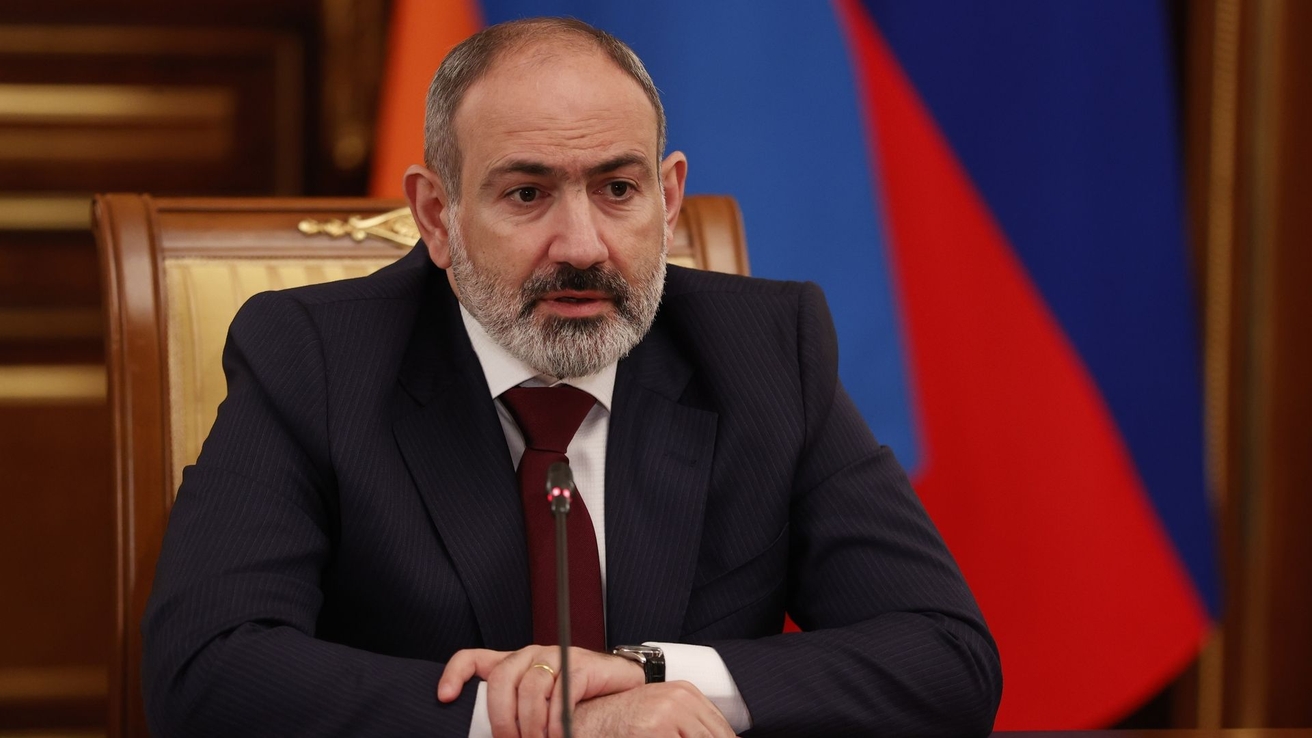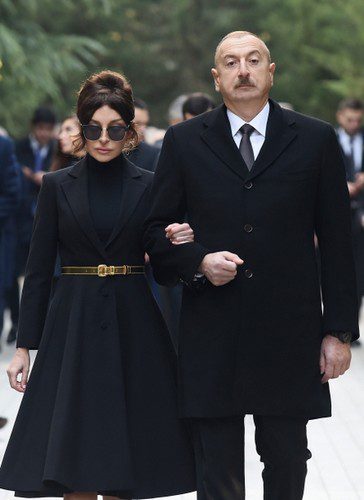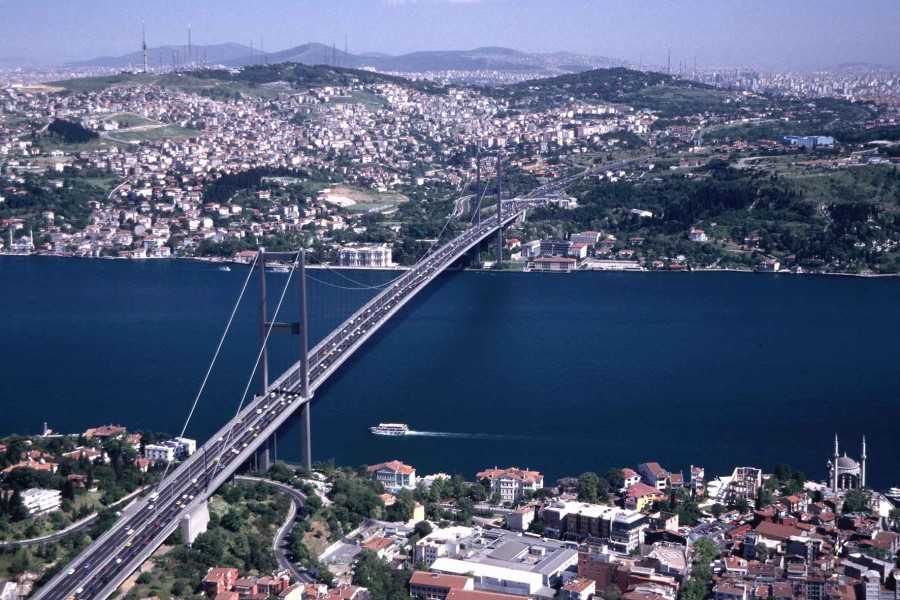Something is terribly wrong when Armenia’s Prime Minister Nikol Pashinyan is making continuous concessions to Azerbaijan, while the French Ambassador to Armenia, Olivier Decottignies, is defending Armenia’s interests. Ironically, a foreign ambassador is more pro-Armenian than the Prime Minister of Armenia.
When Azerbaijan’s President Ilham Aliyev repeated his lie about the non-existent “Western Azerbaijan” as a replacement for the Republic of Armenia, Pashinyan shamefully equated the fake “Western Azerbaijan” with Armenians’ historical demands for “Western Armenia.” It was the French Ambassador who responded to Aliyev on Nov. 24, 2024, on X: “The one and only: Western Azerbaijan is one of the 31 provinces of Iran whose capital and largest city is Urmia,” quoting from Wikipedia. He attached a map of Iran that indicated the location of the Western Azerbaijan province in Iran. The post was viewed over 93,000 times with 114 comments and 1,100 Likes. An Armenian with the pseudonym “Nemesis Melkonian” praised the French Ambassador on X: “Can you become our next prime minister? The current one is ethnically Turkish.” An Iranian replied: “As an Iranian” adding the OK hand sign. This was a slap in the face of Aliyev, but also a rebuke to Pashinyan, according to some Armenian commentators.
On the same day, the French Ambassador also posted a photo of the well-known Blue Mosque in Yerevan and wrote: “In the gardens of the Blue Mosque of Yerevan, emblematic of the Persian heritage of Armenia.” This post was viewed 43,000 times with 46 comments and 660 Likes. While Azeri commentators falsely claimed that the Blue Mosque was of Azerbaijani origin, many others thanked the French Ambassador for featuring this historic Persian place of worship. The Iranian Embassy in Armenia expressed its appreciation to the French Ambassador by posting on X: “The Blue Mosque, a symbol of Iranian art, has been active again in the last three decades as the praying and congregation place of Muslims residing in Armenia and a touristic attraction. A great pleasure that its centuries-old Persian epigraphy has been preserved! Who can read them?” The embassy then added several images of Persian calligraphy found on the walls of the Mosque.
Mordechai Kedar, An Israeli sycophant of Azerbaijan, jumping into the discussion, wrote an article in the Jerusalem Post on December 5, 2024, titled: “France’s ambassador sparks outrage with support for Persian hegemony in Armenia.” This is nothing but pure pro-Azeri propaganda.
Kedar wrote that “The Azerbaijanis are outraged by these social media posts, as the Blue Mosque in Yerevan was built by Azerbaijanis, and trying to portray the mosque as ‘Persian’ demonstrates France’s support for Persian colonialism in the region. Furthermore, the Azerbaijanis are angered at the French diplomat’s attempt to portray West Azerbaijan as part of Iran.” If the Azeris were outraged by what the French Ambassador wrote, why is it any of Kedar’s business, unless he expects to gain something by volunteering to act as a propagandist for Azerbaijan?
Kedar claimed that Armenians have described the Blue Mosque as Persian in order “to erase all traces of Azeri heritage from their country [Armenia].” Kedar is ignoring the fact that Azeris have destroyed thousands of Armenian historic monuments and churches in Artsakh and Azerbaijan. Making an even more outrageous claim, Kedar wrote that Persians “used these Armenian acts of delegitimization in order to expand their colonial influence into the South Caucasus.”
To pile up the attacks on Armenia and France, Elnur Enveroglu wrote on the Azernews website that the French Ambassador’s tweets “revealed Decottirnies’ ignorance of history.” Elnur could not even spell the Ambassador’s last name correctly.
Naturally, the French Ambassador could not leave unchallenged such nonsense from Kedar whose childish arguments disgraced the Jerusalem Post. The Ambassador replied: “Seriously, Mr. Kedar? The Blue Mosque in Yerevan was built under Persian rule in typically Persian style. Does calling a Roman aqueduct Roman ‘demonstrates support’ for colonialism?”
Even though there was no reason for Nasimi Aghayev, Azerbaijan’s Ambassador to Germany, to stick his nose in this issue, but being a life-long falsifier of the truth, starting from his days as the Consul General of Azerbaijan in Los Angeles, he wrote: “Beautiful Azerbaijani Blue Mosque in Yerevan. Built in 1766 by Huseyn Ali Khan, Ruler of Azerbaijan Iravan [Yerevan] Khanate. The only surviving mosque in Armenia. All others (at least 269) were destroyed. Regrettably, Armenia continues to deny Blue Mosque’s Azerbaijani identity.” Mary Hogins rightly responded in a tweet to Nasimi: “You mean Persian Mosque, lying khiyar [cucumber]?”
Nasimi must have forgotten that until 1918 there was no such country as Azerbaijan. Even then, the Secretary General of the League of Nations rejected Azerbaijan’s application to be recognized as a state by writing in an official memorandum in 1920: “This territory, occupying a superficial area of 40,000 square miles, appears to have never formerly constituted a State, but has always been included in larger groups such as the Mongol or Persian and since 1813 the Russian Empire. The name Azerbaijan which has been chosen for the new Republic is also that of the neighboring Persian province.” Case closed.
In his fanatical zeal, Aliyev doesn’t seem to understand that his constant attacks on France, based on lies, are not going to end well for Azerbaijan. France is a superpower, while Azerbaijan is a banana republic, which does not even have bananas, ruled by a two-bit dictator!






